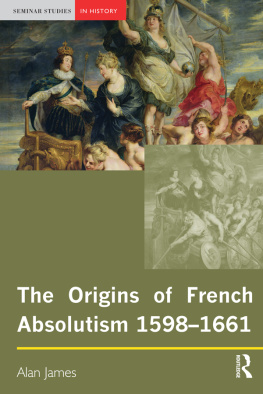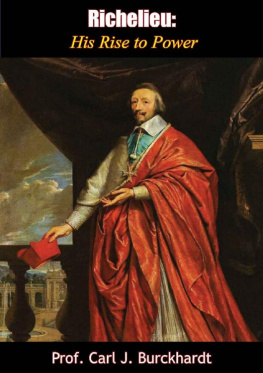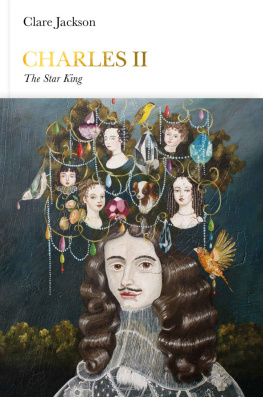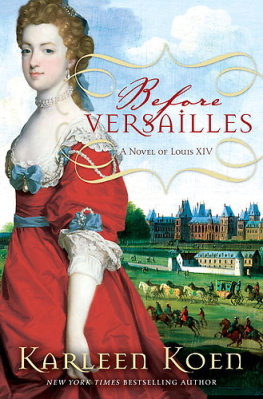%CONTENTS%
VOLUME XII
An Outline Narrative of the Great Events CHARLES F. HORNE
Louis XIV Establishes Absolute Monarchy (A.D. 1661) JAMES COTTER MORISON
New York Taken by the English (A.D. 1664) JOHN R. BRODHEAD
Great Plague in London (A.D. 1665) DANIEL DEFOE
Great Fire in London (A.D. 1666) JOHN EVELYN
Discovery of Gravitation (A.D. 1666) SIR DAVID BREWSTER
Morgan, the Buccaneer, Sacks Panama (A.D. 1671) JOHANN W. VON ARCHENHOLZ
Struggle of the Dutch against France and England (A.D. 1672) C.M. DAVIES.
Discovery of the Mississippi La Salle Names Louisiana (A.D. 1673-1682) FRANOIS XAVIER GARNEAU
King Philip's War (A.D. 1675) RICHARD HILDRETH
Growth of Prussia under the Great Elector His Victory at Fehrbellin (A.D. 1675) THOMAS CARLYLE
William Penn Receives the Grant of Pennsylvania Founding of Philadelphia (A.D. 1681) GEORGE E. ELLIS
Last Turkish Invasion of Europe Sobieski Saves Vienna (A.D. 1683) SUTHERLAND MENZIES
Monmouth's Rebellion (A.D. 1685) GILBERT BURNET
Revocation of the Edict of Nantes (A.D. 1685) BON LOUIS HENRI MARTIN
The English Revolution
Flight of James II (A.D. 1688)
GILBERT BURNET
H.D. TRAILL
Peter the Great Modernizes Russia Suppression of the Streltsi (A.D. 1689) ALFRED RAMBAUD
Tyranny of Andros in New England The Bloodless Revolution (A.D. 1689) CHARLES WYLLYS ELLIOTT
Massacre of Lachine (A.D. 1689) FRANOIS XAVIER GARNEAU
Siege of Londonderry and Battle of the Boyne (A.D. 1689-1690) TOBIAS GEORGE SMOLLETT
Salem Witchcraft Trials (A.D. 1692) RICHARD HILDRETH
Establishment of the Bank of England (A.D. 1694) JOHN FRANCIS
Colonization of Louisiana (A.D. 1699) CHARLES E.T. GAYARR
Prussia Proclaimed a Kingdom (A.D. 1701) LEOPOLD VON RANKE
Founding of St. Petersburg (A.D. 1703) K. WALISZEWSKI
Battle of Blenheim (A.D. 1704) Curbing of Louis XIV, SIR EDWARD SHEPHERD CREASY
Union of England and Scotland (A.D. 1707) JOHN HILL BURTON
Downfall of Charles XII at Poltava (A.D. 1709) Triumph of Russia K. WALISZEWSKI
Capture of Port Royal (A.D. 1710) France Surrenders Nova Scotia to England DUNCAN CAMPBELL
Universal Chronology (A.D. 1661-1715) JOHN RUDD
ILLUSTRATIONS
VOLUME XII
Surrender of Marshal Tallard at the Battle of Blenheim, Painting by R. Caton Woodville.
The Duke of Monmouth humiliates himself before King James II, Painting by J. Pettie, A.R.A.
Charles XII carried on a litter during the Battle of Poltava, Painting by W. Hauschild.
%AN OUTLINE NARRATIVE%
Tracing Briefly The Causes, Connections, And Consequencies Of
%THE GREAT EVENTS%
(Age Of Louis XIV)
CHARLES F. HORNE
It is related that in 1661, on the day following the death of the great Cardinal Mazarin, the various officials of the State approached their young King, Louis XIV. "To whom shall we go now for orders, Your Majesty?" "To me," answered Louis, and from that date until his death in 1715 they had no other master. Whether we accept the tale as literal fact or only as the vivid French way of visualizing a truth, we find here the central point of over fifty years of European history. The two celebrated cardinals, Richelieu and Mazarin, had, by their strength and wisdom, made France by far the most powerful state in Europe. Moreover, they had so reduced the authority of the French nobility, the clergy, and the courts of law as to have become practically absolute and untrammelled in their control of the entire government. Now, all this enormous power, both at home and abroad, over France and over Europe, was assumed by a young man of twenty-three. "I am the state," said Louis at a later period of his career. He might almost have said, "I am Europe," looking as he did only to the Europe that dominated, and took pleasure in itself, and made life one continued glittering revel of splendor. Independent Europe, that claimed the right of thinking for itself, the suffering Europe of the peasants, who starved and shed their blood in helpless agonythese were against Louis almost from the beginning, and ever increasingly against him.
At first the young monarch found life very bright around him. His courtiers called him "the rising sun," and his ambition was to justify the title, to be what with his enormous wealth and authority was scarcely difficult, the Grand Monarch. He rushed into causeless war and snatched provinces from his feeble neighbors, exhausted Germany and decaying Spain. He built huge fortresses along his frontiers, and military roads from end to end of his domains. His court was one continuous round of splendid entertainments. He encouraged literature, or at least pensioned authors and had them clustered around him in what Frenchmen call the Augustan Age of their development.[1]
[Footnote 1: See Louis XIV Establishes Absolute Monarchy, page 1.]
The little German princes of the Rhine, each of them practically independent ruler of a tiny state, could not of course compete with Louis or defy him. Nor for a time did they attempt it. His splendor dazzled them. They were content to imitate, and each little prince became a patron of literature, or giver of entertainments, or builder of huge fortresses absurdly disproportioned to his territory and his revenues. Germany, it has been aptly said, became a mere tail to the French kite, its leaders feebly draggling after where Louis soared. Never had the common people of Europe or even the nobility had less voice in their own affairs. It was an age of absolute kingly power, an age of despotism.
England, which under Cromwell had bid fair to take a foremost place in Europe, sank under Charles II into unimportance. Its people wearied with tumult, desired peace more than aught else; its King, experienced in adversity, and long a homeless wanderer in France and Holland, seemed to have but one firm principle in life. Whatever happened he did not intend, as he himself phrased it, to go on his "travels" again. He dreaded and hated the English Parliament as all the Stuarts had; and, like his father, he avoided calling it together. To obtain money without its aid, he accepted a pension from the French King. Thus England also became a servitor of Louis. Its policy, so far as Charles could mould it, was France's policy. If we look for events in the English history of the time we must find them in internal incidents, the terrible plague that devastated London in 1665,[1] the fire of the following year, that checked the plague but almost swept the city out of existence.[2] We must note the founding of the Royal Society in 1660 for the advancement of science, or look to Newton, its most celebrated member, beginning to puzzle out his theory of gravitation in his Woolsthorpe garden.[3]








